Civil Liberties, FBI Intrusion, Habeas Corpus, Human Rights, Surveillance, Truth to Power
Podcast: Play in new window | Download
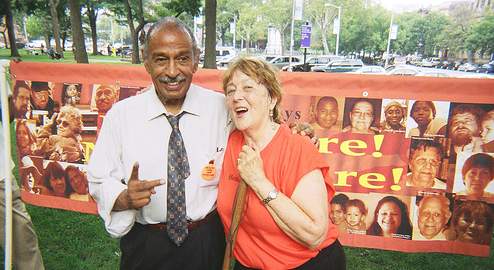
Remembering Marilyn Clement – Health Care Now
As many listeners may know, Marilyn Clement, a great social activist and founder of Healthcare-NOW died on August 3. Early in her social activism career Marilyn Clement joined the Southern Christian Leadership Conference and worked with Martin Luther King in Atlanta. She moved to New York City after King’s assassination, she was the executive director of the Center for Constitutional Rights and was active with the Women’s International League for Peace and Freedom in Philadelphia. Video Of Marilyn’s Speech June 2009
Mrs. Clement became one of the strongest voices for passing a single payer health care bill. She founded the New York based advocacy organization Health Care Now in 2004. We’re joined by long time friend of Marilyn Clement, Reverend Lucius Walker, founder of Pastors for Peace and executive director of the Interreligious Foundation for Community Organization.
Reverend Lucius Walker:
- It’s pleasure to talk about someone so rare and wonderful as Marilyn, I first met her in late 1967.
- She joined the IFCO staff in those early years. I met her in the interview process and felt that she was a remarkable person.
- She came directly to IFCO from being on a staff with Martin Luther King in Atlanta.
- She was drafting an program to do outreach to black ministers, black pastors.
- She sought out the influences that made her radical philosophy possible.
- She quickly became associate director of IFCO and in the thick of some of the most dynamic movements among people of color and poor whites in the country.
- She was very key staff in IFCO in helping to stop COINTEL PRO from trying to break IFCO’s back.
- The IRS ask to audit IFCO’s records. It took them 3 years to examine 18 months of our financial records.
- It was pure harassment, and she was key in helping us move through that whole process.
- Founded Health Care Now, that phase of her life began in 1970. She was the first person I heard articulate the concept of single payer healthcare.
- It (Health Care Now) started in her apartment, that was her office.
Guest – Reverend Lucius Walker – Executive Director of the Interreligious Foundation for Community Organization (IFCO). He was the founding director from 1967 to 1973. He served as Associate General Secretary of the National Council of Churches from 1973 through 1978. In January of 1979 he returned to IFCO, which has the distinction of being the only national ecumenical foundation committed exclusively to support community organizing.
————–

Victory for Vulcans in NYC Firefighters Case
Last month US District Judge Nicholas Garaufis ruled in favor of the fraternal order of black firefighters, in that New York City has been discriminating against minorities in firefighter hirings. The case, similar to other firefighter cases, brought to light the disparities in the results of hiring 5300 firefighters from 1999 to 2007. Out of the 3,100 black applicants and 4,200 Hispanic applicants who took the exam, only 184 black firefighters and 461 Hispanic firefighters were ultimately appointed. These practices help make New York City the least diverse fire department of any major city in America. 09.07.22_Garaufis Vulcans Opinion.pdf
Center for Constitutional Rights Attorney Darius Charney says, “This is a tremendous victory that we’ve been fighting towards for over seven years and we applaud the court for recognizing that the FDNY written examination has no bearing on whether or not a firefighter is qualified.”
Darius Charney:
- No other major city worse than NYC. Most civil service jobs were using written tests since the seventies.
- New York has continued to use a paper and pencil multiple choice test.
- A reading comprehension test, more akin to SAT. The city says its not feasible to structure other types of tests.
- Charney: That’s a bogus answer because other cities such as L.A. incorporate other testing methods.
- the case started in 2002 because we filed a complaint with the EEOC.
- EEOC found probable cause that New York City had discriminated, made under the Bush Administration.
- Vulcan society also brought a lawsuit against the fire department in the seventies
Guest – Darius Charney, Staff attorney at the Center for Constitutional Rights in the Racial Justice/Government Misconduct Docket. He is currently lead counsel on Floyd v. City of New York, a federal civil rights class action lawsuit challenging the New York Police Department’s unconstitutional and racially discriminatory stop-and-frisk practices, and Vulcan Society Inc. v. the City of New York, a Title VII class action lawsuit on behalf of African-American applicants to the New York City Fire Department which challenges the racially discriminatory hiring practices of the FDNY.
——————————————-
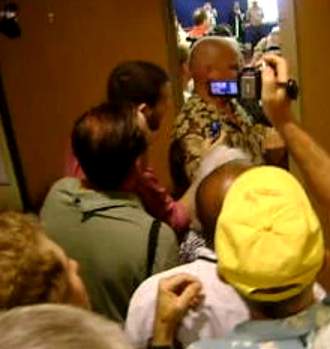
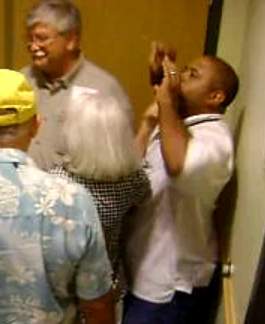
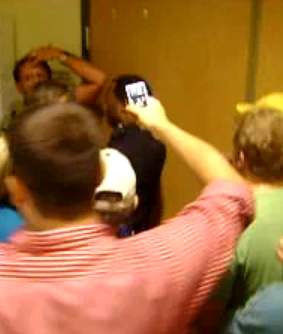
Story on Town Hall Riots: Right-Wing Shock Troops Do Corporate America’s Dirty Work
Were the fights and disruptions during the town hall meetings this month carefully organized and meticulously planned? A breaking news story at Alternet titled Story on Town Hall Riots: Right-Wing Shock Troops Do Corporate America’s Dirty Work unearths the massive right wing strategy. Anti government fringe groups have aligned with the health care industry, the GOP and Rupert Murdoch to create the town hall riot spectacles.
Adele Stan:
- I do think its important to look at the conflagration of interest in this whole thing.
- You have the corporate health care interest, you have Wall St., you have big media in the form of Rupert Murdoch, you have a Capitol Hill PR firm, that serves all these interests, and then you have these folks on the ground espousing anti-corporate personal belief.
- Dick Armey, former House Majority Leader, former Congressman from Texas, who works for a lobbying shop called DLA Piper and runs the non-profit called Freedom Works.
- Freedom Works is one of the major organizers of these town hall protests. DLA Piper, Dick Armey’s day job, represents a number of medical and oil interests.
- Resist Net – really caught my attention. It’s part of a network called Grassfire.org, and really organizes the far right. Milita types, anti-taxers, etc.
- Grassfire.org has solid connections to the institutional Republican Party. William Crystal, Peggy Noonan (You Are Terrifying Us)
- You’ll go to these sites and it will say, Stop Obama care now, and you’ll see a listing of the town hall meetings.
- Restoretherepublic.com at bottom of protest signs, connects to ResistNet. It’s clever and hard to find the tentacles.
Guest-Adele Stan, AlterNet’s Washington Bureau Chief
———————————————————————-
Afghanistan War, Civil Liberties, Criminalizing Dissent, FBI Intrusion, Green Scare, Habeas Corpus, Human Rights, Surveillance, Torture, Truth to Power
Podcast: Play in new window | Download
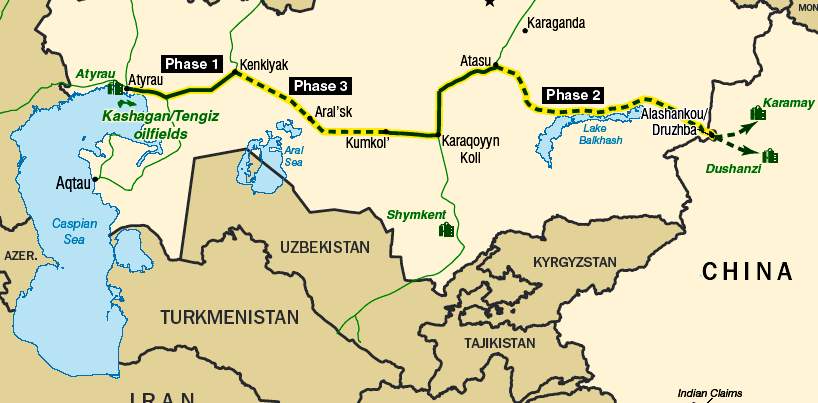
Blood and Oil in Central Asia
Is the Afghanistan War less over terrorism than it is over energy? It’s a high stakes chess board writes Conn Hallidan, a foreign policy analyst, and if the US controls the sources of energy of its rivals, Europe, Japan and China, and other nations, they win. Hallinan, says strategic energy alliances are forming between Russia and China. China is planning a 4 thousand mile pipeline from the Caspian Basin to the Guangdong Province while Russia is locking up natural resources such as natural gas in Kazakhstan and Uzbekistan.
Conn Hallinan:
- It’s about the United States attempting to control energy sources at a time when world oil reserves are beginning to drop.
- In fact there’s going to be a sharp drop in world oil reserves while Brazil India and China are growing fast. There’s a growing sharp competition for controlling those energy resources.
- The United States pretty much has its thumb on the Middle East oil reserves and has been maneuvering to control natural gas and oil coming out of Caspian Basin.
- Follow the roadways for Pipelanistan, looking at energy resources as looking at a map.
- This is a battle for control of energy resources. Whoever holds the high ground in the next half century will have their hand on jugular vein of their competitors.
- Tremendous expansion of NATO into former Soviet areas and into Central Asia creates the counter-response. Shanghai Cooperation Organizations
- The SCO is on a roll. China loaned Turkmenistan 3 billion dollars.
- Long term goals for current administration not very different from past administration.
- I want to go the White House and sit down with Obama and say, “ok, look just read Kipling, read Kim, the poem, Arithmetic on the Frontier.”
- The situation is a complete disaster, we’re destabilizing India and Pakistan, the most single dangerous flash-point in the world right now.
Guest – Conn Hallinan , a columnist for Foreign Policy In Focus and a lecturer in journalism at the University of California, Santa Cruz.
————-
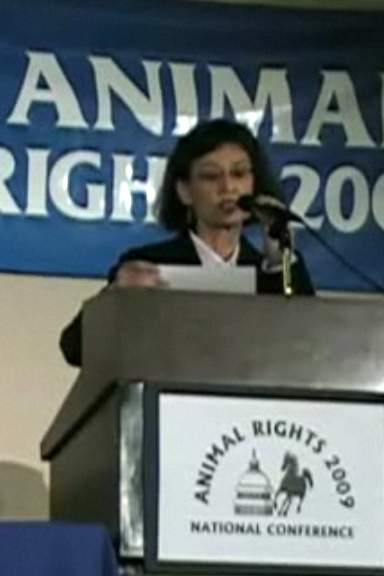
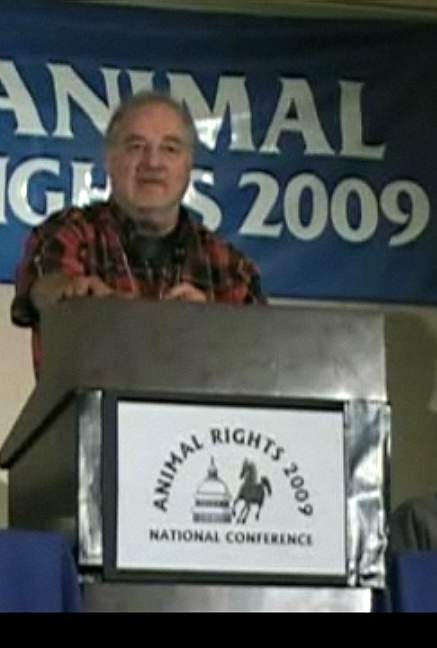
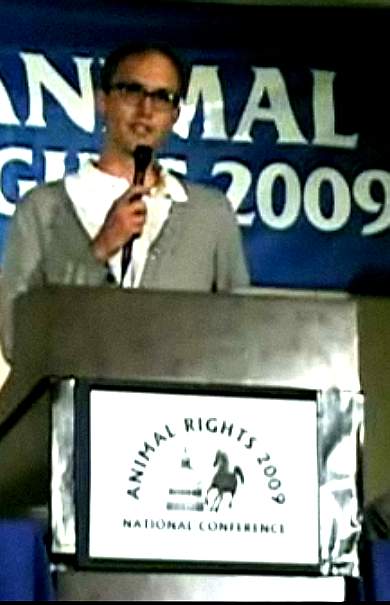
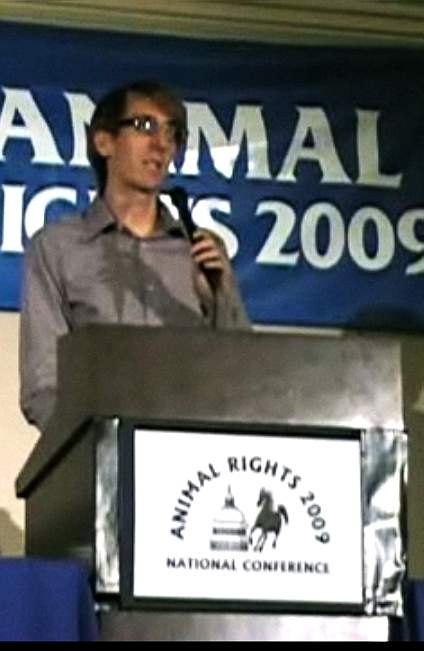
Animal Rights Annual Conference 2009 Speeches
We hear four speeches from the Animal Rights Annual Conference this year. The speakers are our own co-host Heidi Boghosian, Attorney Matthew Strugar, Social Justice Attorney Bob Bloom, and Will Potter. Full list of speakers.
Heidi Boghosian:
Bob Bloom:
- One of the defense attorneys for the Animal Terrorism Enterprise Act 4.
- What I learned defending the Black Panther Party, in the criminal justice system, is that there is a particular mechanism to control people who want to make things better, who want to change things. Courts are not for justice, they’re for repression.
- Under the animal enterprise act, you can have a business enterprise that uses and tortures animals. It just doesn’t seem right.
- Ask the experimenters why they experiment on animals and the answer is quote – because the animals are like us.
- Ask the experimenters why its morally ok to experiment on animals and the answer is quote because the animals are not like us.
Will Potter:
- GreenIsTheNewRed
- Communication enhancement facilities are political prisons for those who have been widely connected with others. When you have secretive facilities and special legislation or so-called second tier terrorism inmates, you’ll soon have secretive facilities and special legislation or so-called third tier terrorism inmates and secretive facilities and fourth tier terrorism inmates, until brick by brick, the barriers of what is being labeled a protester and an activist and a dissident and a terrorist have completely crumbled.
Matt Streuger:
——
The Animal Enterprise Terrorism Act (AETA) is a United States federal law It was signed by the President of the United States November 27, 2006. Earlier versions of the bill were known as S. 1926 and H.R. 4239. The bill is described by the author as being intended to “provide the Department of Justice the necessary authority to apprehend, prosecute, and convict individuals committing animal enterprise terror.”
Analysis of The Animal Enterprise Terrorism Act
—————————————————————————
CIA Sponsored Terror, Civil Liberties, Criminalizing Dissent, FBI Intrusion, Human Rights, Truth to Power, Uncategorized
Podcast: Play in new window | Download
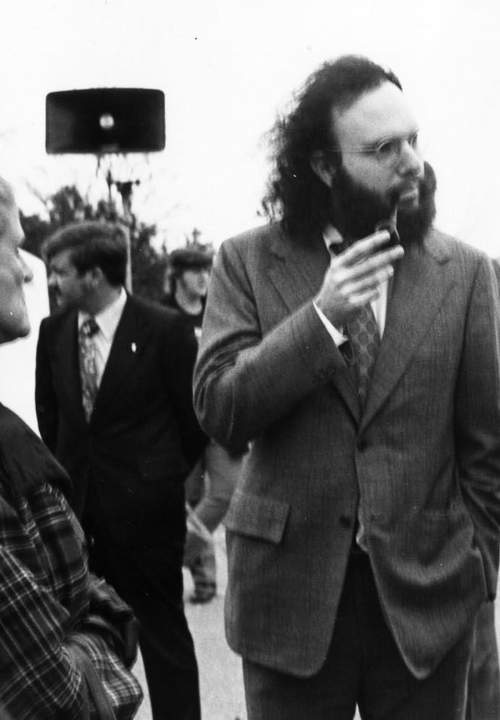
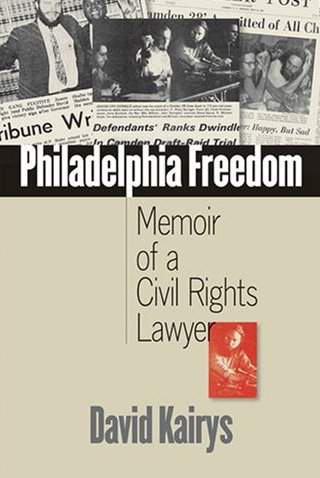
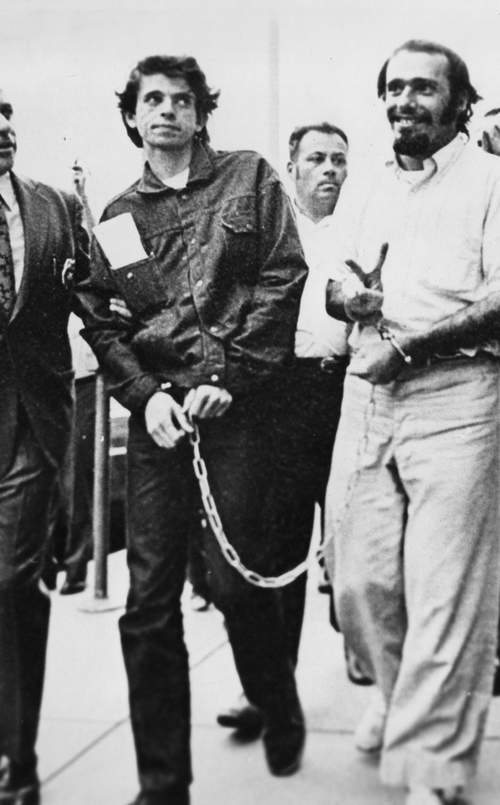
David Kairys: Lawyers You’ll Like
David Kairy began his career at the Philadelphia public defender’s office in the late 1960s. Since then, he’s been a leader in effort to fight discrimination and protect individual rights, now he’s regarded as one of the nation’s preeminent civil rights attorneys. David is a professor at the University of Temple Law School, where he teaches civil rights and constitutional law. He has written several books, including Philadelphia Freedom: Memoir of a Civil Rights Lawyer, which was published last year.
David Kairys:
- We were of a number of young firms dedicated to civil rights and representation of progressive groups.
- The Camden 28, caught in the act of breaking into a Camden, New Jersey draft board and destroying all of the files. This was a Catholic Left action.
- FBI had informant in the group, who the FBI was paying on an hourly rate. The informant supplied the means to make the action happen.
- One hundred FBI agents sat around and waited til they destroyed all the files in the office. Many of the 28 were priests. There were more than 300 draft board raids during Vietnam.
- Father Michael Doyle said when your government is napalming children, the place you should be is in jail.
- Father Doyle and I strategized a way to start talking to the FBI informant Bob Hardy and eventually got an affadavit saying that the FBI manufactured this crime.
- I filed the affidavit and it was on the front page of the New York Times.
Guest – David Kairys, Professor of Law, the first James E. Beasley Chair (2001-07), and one of the nation’s leading civil rights lawyers. He authored Philadelphia Freedom, Memoir of a Civil Rights Lawyer and With Liberty and Justice for Some and co-authored the bestselling progressive critique of the law, The Politics of Law, and authored With Liberty and Justice for Some and over 35 articles and book chapters. His columns have appeared in major periodicals, and he has been profiled in the Chronicle of Higher Education, Wall Street Journal, and Philadelphia Inquirer Sunday Magazine. Kairys’s Public Nuisance Theory.
—–

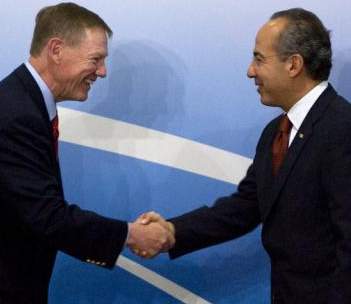
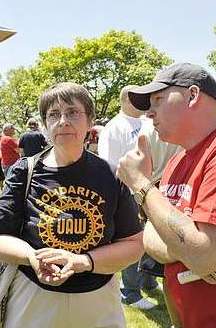
Detroit’s Economic Corrosion
The bankrupt General Motors will use the billions of taxpayer bailout funds to move their productions to Mexico and China. In one report Mexican workers will be making 3 dollars an hour without benefits. Meanwhile, the jobless in Detroit rose to 13 percent unemployment. Retired Auto Worker member of local 235, Dianne Feeley says Detroit is 40 percent unoccupied, homes are looted for furnaces and copper and soon burned to the ground. Dianne joins us today to give us a sense of the economic corrosion in Detroit. Dianne Feeley Speaking – Youtube.
Dianne Feeley:
- In Detroit we were a city of 2.2 million now were about 900,000.
- Saving Corporations, Sacrificing Workers by Dianne Feeley
- We need manufacturing to be re-tooled like in WWII. It took 8 months to re-tool those plants.
- We’re suggesting since the United States, doesn’t have mass transit, that’s something our plants can build.
- General Motors used to manufacture buses. In addition to green vehicles, there’s the whole range of mass transit.
- Detroit no longer has any department stores in the city, although we’re 140 square miles.
- There’s no major grocery store in the city, no wonder fast food is the only thing available for large swaths of the city. Detroit is 85 percent African American.
- GM has insisted that more auto workers are laid off, and more benefits are cut back.
- Right before GM went bankrupt, the US Treasury Department demanded the UAW give up the retiree vision benefits and dental benefits.
- Now, why in an economic downturn are you going after small benefits that retirees have?
- Out of the price of the car manufactured, auto worker wages represent 8-10 percent of the total cost.
- At least in other countries when the government gives money to corporations, they don’t lay off workers. In our case, the government has helped GM and Chrysler to lay off workers, that’s what they’re demanding.
- (Instead of laying off workers) How do we move out of an auto-centric society into a mass transit society?
- In the last 30 years the unions have taken the position of “how do we make the company profitable” so there’s no concession we can’t make.
- The media and politicians (esp) have demonized the auto-worker. We’re supposed to be the high paid 73 dollars an hour worker.
- No one talks about how much CEOs make an hour. We don’t make 73 dollars/hour, that’s a miscalculation.
- The jobs not only left the US, but they left where there were better labor laws.
Guest – Dianne Feeley, a retired auto worker who currently serves as an editor of Against the Current, a socialist magazine. She is an advocate for auto workers and has written recently about the U.S. auto industry, arguing that the government should buy Chrysler and General Motors and turn them into a public trust.
—————————————————————————–
Afghanistan War, Civil Liberties, FBI Intrusion, Guantanamo, Habeas Corpus, Human Rights, Iraq War, Military Tribunal, Surveillance, Targeting Muslims, Torture, Truth to Power
Podcast: Play in new window | Download
WBAI Listeners Click Here For June 1, Rundown
Torture And The Need For Justice – Wednesday June 3, at the New York Society For Ethical Culture.
Updates:
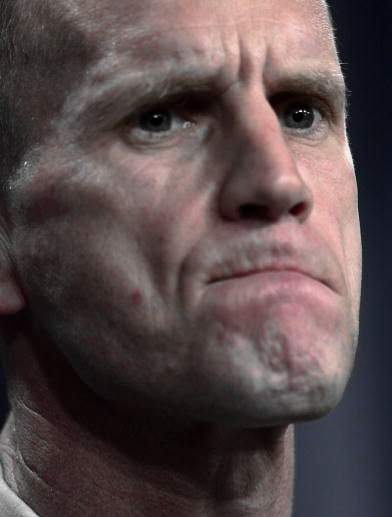
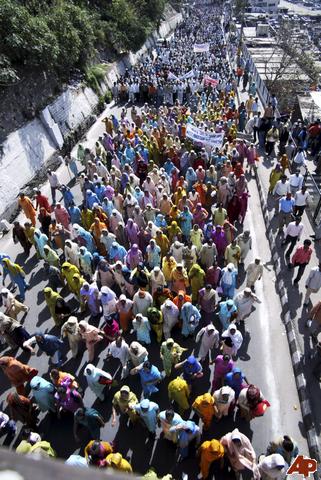
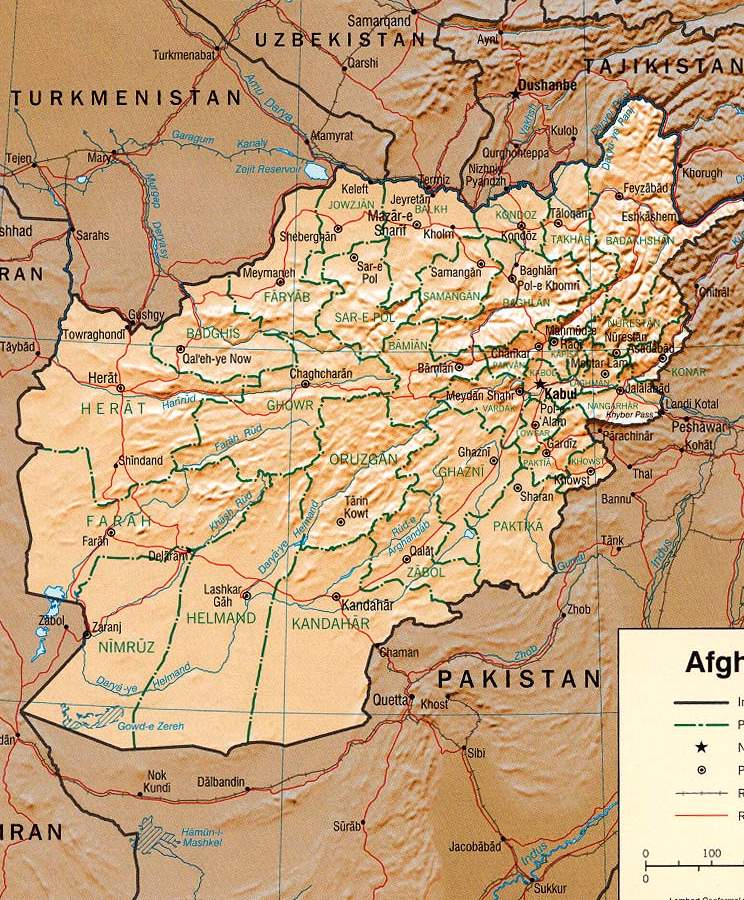
Obama’s Animal Farm: Bigger, Bloodier Wars Equal Peace and Justice
Here on Law and Disorder we recently talked with several guests on the escalation of war in Afghanistan under the Obama Administration. Last week Obama appointed General Stanley McChrystal to head the US and NATO military command in Afghanistan, – another decision revealing how Obama has restored the most notorious Bush era policies according to James Petra, a former Professor of Sociology at Binghamton University, New York. In his article titled Obama’s Animal Farm: Bigger, Bloodier Wars, Petra outlines how McChrystal’s past brutal leadership is marked by systematic torture, bombing of civilian communities and extrajudicial assassinations. Between September 2003 and August 2008, Petra writes – McChrystal directed the Pentagon’s Joint Special Operations Command which operates special teams in overseas assassinations. Petra also mentions that McChrystal is one reason why Obama is fighting to prevent the release of graphic photos that document torture by US soldiers and interrogators. Related: Mysterious Chip-CIA’s Latest Weapon Against Taliban.
Jim Petras:
- It’s very clear that Obama wants a bigger and more ferocious counterinsurgency program.
- Obama is also concerned because the entire Pakistan and Afghanistan borders are supporting resistance. Indigenous, anti-colonial forces have taken over.
- He’s going all out now, he’s pressured the puppet president of Pakistan to launch this humanitarian crime against the Pakistani people, creating 2 million Pakistani refugees, destruction and civil war.
- The overall picture that we get is a tremendous boost in militarization. In the last couple of months it’s one attack after another on the Pakistan military.
- McCrystal is gung-ho, he’s a greater asset to destroy the social networks among the resistance. Similar to Vietnam, to go into villages and assassinate local leaders.
- General McCrystal is a proponent of direct action strictly involved in US terrrorist operations. Slitting throats and strangling anyone remotely connected with the armed resistance.
- There was effort to distinguish between civilians and armed resistors. McCrystals approach is to empty the pond to catch the fish. There going in to drive out millions of people in Pakistan to catch a few thousand resistance fighters.
- This is a monstrous humanitarian disaster compared to Rwanda.
- Torture Photos: You can’t publicize the worst activities of the person you appoint to be the head honcho in this phase of the war.
- Navy Seals, Delta Force, Special Operations Command. I was at Ft. Bragg, in a debate with military officers regarding death squads in Central America. These are killing operations, no surrender. The people that go into it are psycopaths.
- That Obama appointed McCrystal to this position builds bridges back to the worst part of the Bush Administration. Obama has accepted the general paradigm of the past presidents, he has a vision of military empire building, rather than realizing that much more power is achieved in economic expansion and investment.
- The US thought they could do both, economic and military empire building, but with the loss of manufacturing and rise of financial businesses there was no counterweight to the military side of empire. American power can only be realized through a massive military commitment.
- This is a war against a people, it’s going to be a long dirty war. It’s already shaping up. It’s a cost for big oil and manufacturing, rather than a benefit.
Guest – James Petras, a former Professor of Sociology at Binghamton University, New York, owns a 50_year membership in the class struggle, is an adviser to the landless and jobless in Brazil and Argentina, and is co_author of Globalization Unmasked (Zed Books). His latest books are The Power of Israel in the United States (Clarity Press, 2006); Rulers and Ruled in the US Empire: Bankers, Zionists, Militants (Clarity Press, 2007) and Zionism, Militarism and the Decline of US Power (Clarity Press 2008)
—
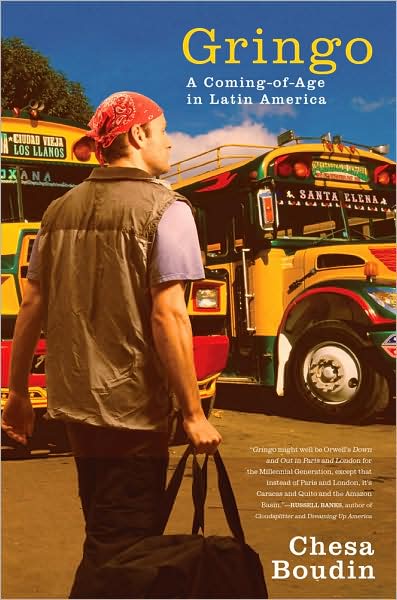
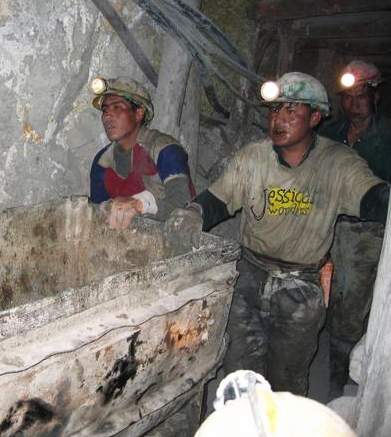
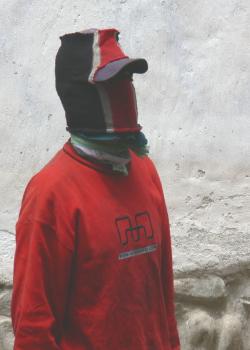
Gringo – A Coming of Age in Latin America
In the book Gringo – A Coming of Age in Latin America, author Chesa Boudin travels through parts of Venezuela, the streets of Guatemala and to protests in Santiago. Boudin’s narrative chronicles nearly a decade of on-the-road experiences in Latin America. He’s captured the transformation in Latin American politics through the voices of the wealthy and the desperately poor.
One review called Gringo, a quote – compelling firsthand account of the unregulated greed, social neglect, and deliberate misrule that has provoked so many Latin Americans to demand a better life for themselves and their children.”
Seymour Hersch says in another review, it’s quote – cheap beer, fried plantains, long dusty bus rides, radical politics, the repeated kindness of desperately poor people sharing what they have with an outsider, and Chesa Boudin’s eagerness to share what he’s seeing and what he’s feeling, with sympathy and empathy __ as he tries to sort it all out. There’s much to learn in this book.”
Chesa Boudin:
- This is a book that weaves together two different threads. One is my own personal journey, my own effort to make sense of my identity, my place in the world as a white, priveledged North American man. But also, in the context of where I was traveling, working and studying in Latin America at a time when the region was experiencing a dramatic political shift to the left.
- I had grown up in a very political family. All 4 of my parents had been very involved in the anti-war movement. Both of my biological parents Kathy Boudin and David Gilbert were incarcerated in New York State maximum security prisons.
- I grew up in two very different worlds, one of prison and one of privelege and opportunity.
- I took public buses mainly, interacted with the poorest and most humble as well as the elite rich.
- I went to Guatemala and from there I went to Chile, which was a classic example of what Naomi Klein writes about in the Shock Doctrine of the US with Pinochet imposing the neo-liberal model on the people.
- I sat for hours and hours in line to change money into pesos, I watched entire families digging through garbage on the street.
- The irony Michael is that I found time and again, the most downtrodden, the most humble, the ones living 17 people in a 2 bed room apartment that took me in. Those were the ones that were the most generous.
- When the political and economic models come out of Washington, it became difficult to fathom what another government approach would look like.
- In Venezuela, I watched the recreation of system based not on shutting people out but rather giving them a stake in the day to day functioning of their government and empowering poor people.
- Instead of having people from another country or economic class come in and tell them what they need to do.
- Venezuela is exciting, its hard to predict what may happen. Ten years into Chavez’s presidency, an opposition opinion poll places him at 60 percent.
- One of the controversies in Venezuela is the constitutional reform of term limits.
- The people voted for this not only for the president but for other offices as well, the New York Times framed it as the downfall of democracy.
- Bolivia has been my favorite country to visit, it’s a beautiful country. Visiting the mines and talking with the miners is something I use as a lens to view the country’s current politics and the political development that led to the election of Evo Morales.
- One thing I’ve noticed in Bolivia is the left has gotten much more experience being critical from the outside then from actually learning to govern from the inside.
Guest – Chesa Boudin – a Rhodes Scholar, is a student at Yale Law School and author of Gringo: A Coming-of-Age in Latin America (Scribner)
—————————————————————————————-
Censorship, Criminalizing Dissent, FBI Intrusion, Habeas Corpus, Human Rights, Impeachment, Iraq War, Prosecution of the Bush Administration, Supreme Court, Surveillance, Targeting Muslims, Truth to Power
Podcast: Play in new window | Download
Host Updates:
—
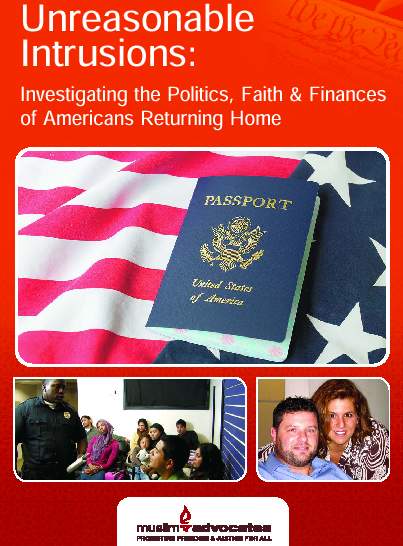
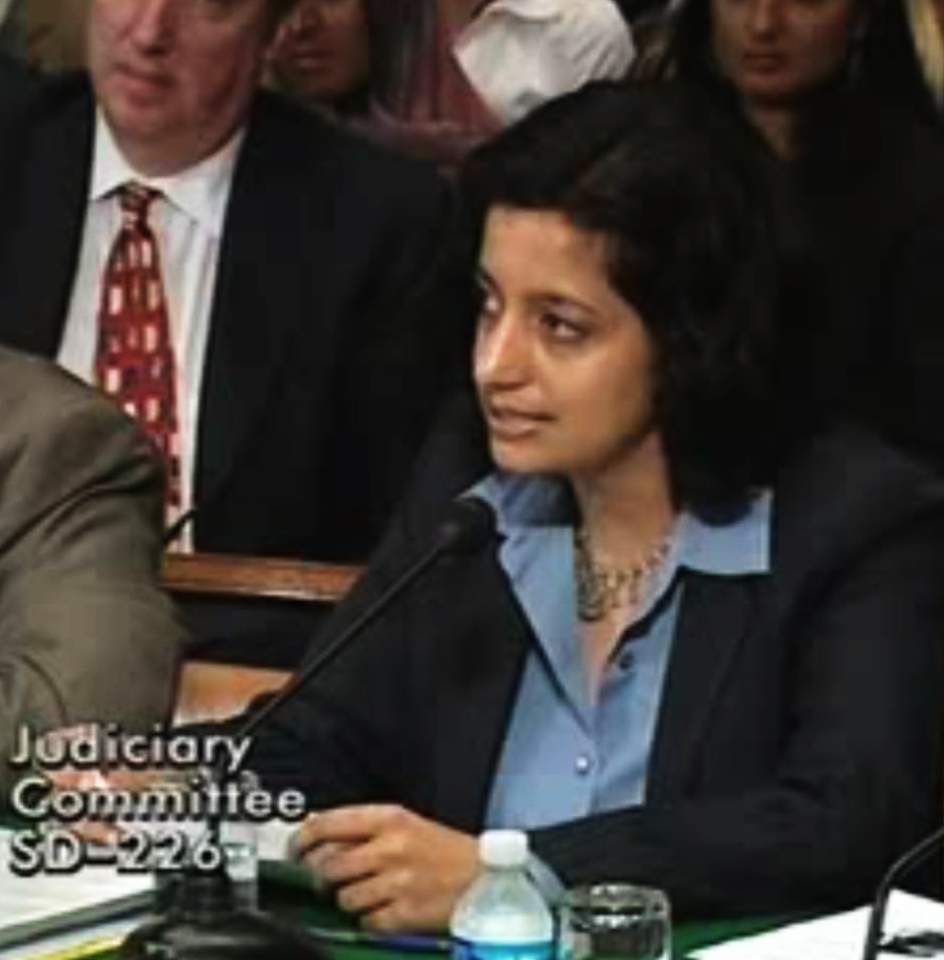
Unreasonable Intrusions Report
Last month, the Muslim Advocates released a report titled Unreasonable Intrusions: Investigating the Politics, Faith & Finances of Americans Returning Home. The report documents the systematic and widespread practice of federal agents interrogating Americans returning home after overseas travel at our nation’s borders and international airports. Muslim Advocates, a sister group with the National Association of Muslim Lawyers (NAML), which is a group of approximately 500 Muslim lawyers, law students and other legal professionals.
Farhana Khera:
- These are folks who are returning home from travel and they’re being stopped at borders, land crossings.
- After showing valid US passports, federal agents are engaging in very invasive questioning and searches of these Americans.
- Muslim or those Americans who may look Muslim.
- The questions (from border agents) go into first amendment protected areas. What mosque do you attend? How often do you pray?
- We want to educate federal policy makers, members of Congress, Homeland Security and the Obama Administration about this practice.
- Laptops, cameras and phones searched, in some cases asking about people in images, and how they particular individuals.
- Again, all of this without any evidence or suspicion.
- Ninth Circuit Decision US v Arnold, pretty much gives blanket authority to federal agents at the border to search laptops and electronic devices of law abiding Americans.
- We really need some standards in place that address the need of probable cause and reasonable suspicion before seizing personal data.
- We believe that Americans have the right to enter the country and not be compelled to answer questions, particularly about first amendment protected beliefs.
- We are giving practical advice in saying that you think this line of questioning is inappropriate. Get badge #’s of officers who have your stuff, then file a complaint.
- Traveler’s Privacy Protection Act – Proposed Legislation, to be re-introduced.
Guest – Farhana Khera, first Executive Director of Muslim Advocates and the National Association of Muslim Lawyers (NAML). Prior to joining Muslim Advocates and NAML in 2005, Ms. Khera was Counsel to the U.S. Senate Judiciary Committee, Subcommittee on the Constitution, Civil Rights, and Property Rights. In the Senate, she worked for six years directly for Senator Russell D. Feingold (D_WI), the Chairman of the Constitution Subcommittee. Ms. Khera focused substantially on the USA PATRIOT Act, racial and religious profiling, and other civil liberties issues raised by the government’s anti_terrorism policies since September 11, 2001. She was the Senator’s lead staff member in developing anti_racial profiling legislation and organizing subcommittee hearings on racial profiling.
—-
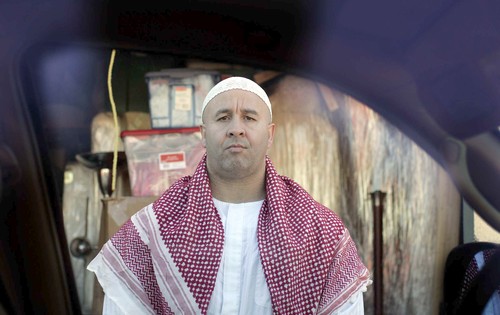
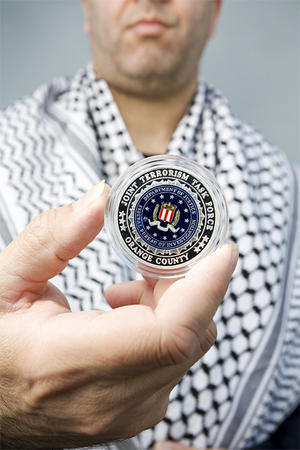
FBI Exposed: Federal Judge Orders FBI to Provide Full Muslim Surveillance Records
Last week a federal judge ordered the FBI to submit 100 documents detailing the bureau’s surveillance of Muslim leaders and organizations in Southern California and specifically, documents relating to the Council on American_Islamic Relations of Greater Los Angeles and its executive director. The court’s decision came in response to a 2007 lawsuit filed by the ACLU of Southern California that claimed the government’s incomplete and long_delayed response violated the Freedom of Information Act.
An attorney with the ACLU of Southern California says the surveillance records will show how the FBI infiltrated Southern California mosques and invasively monitored members of the Muslim community as if they were criminals.
“Truth can never be redacted. Only full disclosure will satisfy us and alleviate the pervasive fear in our communities and congregations,” said Shakeel Syed, executive director of the Islamic Shura Council of Southern California, who joins us today.
Shakeel Syed:
- It was confirmed in a court of law, under oath, that the FBI had employed informants, in one case, the informant was a former convicted felon.
- Craig Monteilh has multiple identities, he was given a different by the FBI and sent into one of the mosques.
- He embraced Islam proclaiming that he wanted to become Muslim and wanted to make his faith public.
- He abused the Islamic platform to gain trust in the community. The FBI told him the best way for you to infiltrate is to become Muslim and pretend to be a slow learner.
- The people at the mosque were alarmed when Craig Montel was encouraging others to blow up buildings in LA
- They called the FBI office on Craig Monteilh unaware that he was an informant. They brushed the report aside.
- Radiation monitoring of mosques
- We filed a FOIA request jointly not individually, which was good because what was suspected is now fully confirmed in the court of law that informants were paid as provocateurs in the area.
- In 2006, one of our members of the mosque, a student, ambushed an agent that was following him and he was apprehended by the University of Irvine campus police. We later filed a case against this individual and later never heard back from the campus police or the FBI.
- We received similar reports in our conversations with other community leaders in other areas such as Chicago, New York, Dallas, Detroit, Houston, Atlanta, Miami, San Francisco.
- It was revealed in some of the FBI surveillance documents that my private speeches were mentioned that were against the war in Iraq. Dalia Hashad – “They were in the mosque.”
- We continue to receive reports from the community on an almost ongoing basis from within the regions of Southern CA that the FBI has approached them to become informants, threatened them, intimidated them, offered them convenience of getting their naturalization papers expedited or immigration papers duly adjusted.
- I’m disgusted, but more emboldened to stand up and assert my rights.
Guest – Shakeel Syed, executive director of the Islamic Shura Council of Southern California.
———————————————————————————-









